Courtesy Photo: Big Hit Entertainment
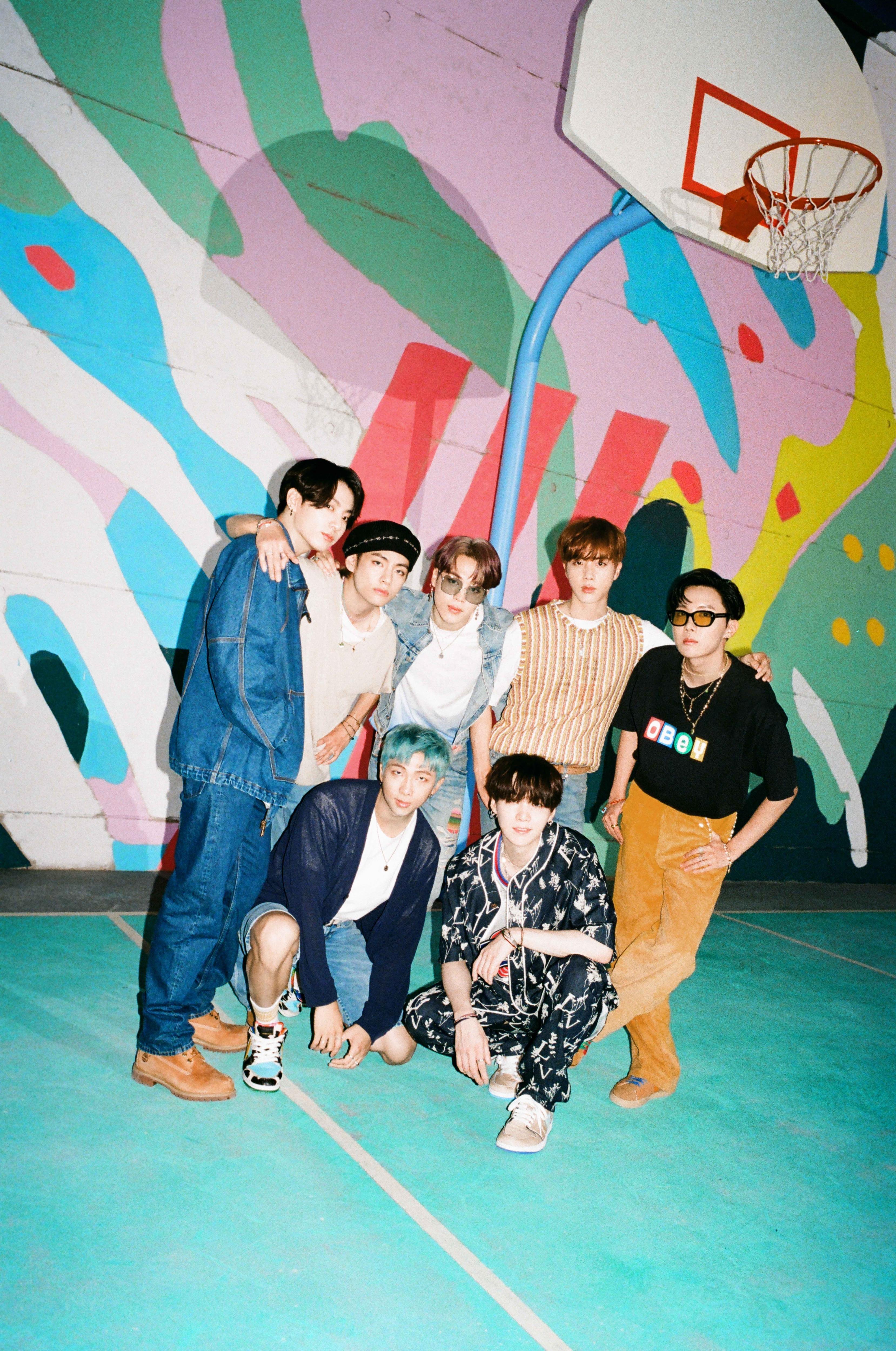
BTS
news
BTS Talk Inspiration Behind "Dynamite," New 2020 Album, Gratitude For ARMY & More
The joyful, new 2020 BTS song "Dynamite," included on the album 'Be,' is the pop superstars' first-ever English-language track and was especially crafted to bring encouragement and positive energy to listeners.
Today, Aug. 21, after several weeks of teasers, K-pop superstars BTS have released their first English language track, "Dynamite," a jubilant disco-tinged bop meant to inspire joy and hope during these difficult times.
"[The inspiration for] it all began from this: even in the midst of hardships, we must focus on what we can do. As for us, we found freedom and happiness in singing and dancing. This song goes to the ones who need encouragement. We hope people feel energized when listening to the song," the chart-topping band recently told GRAMMY.com.
<style>.embed-container { position: relative; padding-bottom: 56.25%; height: 0; overflow: hidden; max-width: 100%; } .embed-container iframe, .embed-container object, .embed-container embed { position: absolute; top: 0; left: 0; width: 100%; height: 100%; }</style><div class='embed-container'><iframe src='https://www.youtube.com/embed//gdZLi9oWNZg' frameborder='0' allowfullscreen></iframe></div>
Even in such an unprecedented year of turmoil and slowdown for the entertainment industry (and virtually everyone), BTS have been able to maintain their stance at the top of the global pop landscape. After having to cancel their massive 2020 Map Of The Soul World Tour, the South Korean group, already having a super engaged online presence with their huge ARMY of dedicated fans, got creative and delivered a lively, colorful—and wildly successful—pay-to-view virtual concert, BANG BANG CON: THE LIVE, in June.
This year, the loveable pop stars also led by example of what it means to be a positive force in the world, using their platform for good in many ways. In June, along with their South Korean management company, Big Hit Entertainment, they donated $1 million to Crew Nation to support out-of-work concert crews and $1 million to the Black Lives Matter Foundation. (Just 24 hours later, the BTS ARMY matched the donation by raising more than $1 million.) They also stood in solidarity with the Black community with a simple yet powerful Tweet that made their stance against racism clear.
And, of course, they've also been busy working on new music, delivering "Stay Gold" and their fourth Japanese album, MAP OF THE SOUL: 7 ~The Journey~, in June and July, respectively. Now, with "Dynamite," we get the first taste of the forthcoming new album they've been focused on crafting.
To hear more about "Dynamite," the upcoming project, the ARMY and other BTS 2020 highlights, we checked in with the dynamic septet (consisting of RM, Jin, SUGA, j-hope, Jimin, V and Jung Kook) over email. Read on to hear more from BTS.
What was the inspiration behind your new song, "Dynamite"? What do you hope listeners feel when they hear it?
BTS: It all began from this: even in the midst of hardships, we must focus on what we can do. As for us, we found freedom and happiness in singing and dancing. This song goes to the ones who need encouragement. We hope people feel energized when listening to the song.
More: BTS Talk New Album 'Map Of The Soul: 7': "The Genre Is BTS"
"Dynamite" is your first song sung/rapped fully in English--how did you prepare for the recording and who wrote the lyrics?
BTS: It was a new challenge for us as well. The lyrics, which are exactly what we wanted to say to our listeners, were written by David Stewart and Jessica Agombar. At the first try, it sounded fresh and perfect as it is in English, and throughout the whole process of recording, we've strived to get the message delivered flawlessly in English.
Can you tell us more about the new album you've said is coming later this year? What kind of sounds and themes are you exploring on this project?
BTS: We're currently working on a new album and sharing the process with our fans via livestream. Each member's input has been significant for this particular one, so we're kind of doing everything we've wanted to try. It's slated for later this year and more details are coming soon.
In February, Map Of The Soul: 7 became your fourth album to debut at No. 1 on the Billboard 200, with your highest first-week numbers yet. What does the success of this album mean to you?
BTS: We cannot be thankful enough to our fans. They made this possible.
Iconic Idols: K-Pop Phenoms BTS Keep Breaking Records: Here's Why
You've all released music as solo artists—what does it feel like working on your individual projects versus BTS? What's the biggest thing you've each learned from your solo projects?
RM: It feels like I have two completely different identities. Working as BTS, I have to be considerate of others, but at times it also means I just have to do my part well and the rest will roll. When working individually, I definitely have more freedom but less of the sense of comfort and belonging I can feel when working with the other BTS members.
Jin: I can do whatever I want when I work alone, whereas we all need to be on the same page on concepts, melodies and lyrics for a collective project.
SUGA: [For me,] there's not much of a difference in terms of process. It's just really encouraging to have my team by my side and work together on a BTS album.
j-hope: I get to know about my shortcomings from a solo project. We have many people participating in our team projects, including producers. But a solo project is a direct result of the planning and execution done by myself, which helps me better understand feedback from the public—those are valuable takeaways.
Jimin: I focus more on my personal thoughts when I work alone, whereas working together allows me to contemplate more on the things we experience as a team. I also believe that solo projects are additional activities enabled by BTS.
V: I'm currently working on my own mixtape and I must admit there's a lot of pressure. I think there's more to think about compared to group projects.
Jung Kook: I don't think I can call myself a solo artist yet since I'm short of many things. I really need to improve. I'll keep listening and making music until I'm able to come up with something on my own.
Your virtual BANG BANG CON show was a huge success—what did it feel like to all of you to connect to the ARMY in this way? Do you think you'll plan another one?
BTS: We were so happy to be performing for our fans. Yes, we did miss their loud cheers, but we gave it our all thanks to the love sent by our fans from near and far. We're actually holding another show in October called "BTS MAP OF THE SOUL ON:E" and this time it will be both virtual and offline. We're so excited and thrilled to finally meet our fans in person.
As a group, you've stood in solidarity with Black Lives Matter on Twitter and with a generous donation in partnership with Big Hit. As non-Black allies, why is it important for the group to speak out and join the Black community in solidarity?
BTS: We think our Twitter message speaks for itself. We stand against racial discrimination and condemn violence. We all have the right to be respected. It doesn't matter whether we are non-Black or not.
Watch More: BTS On The Creative Process, Breaking Records, Their Responsibility As Artists & More
What's next on the horizon for BTS?
BTS: As we mentioned, we have a show in October and an album coming later this year. And we have lots of things prepared surrounding "Dynamite," so everyone better keep their eyes on the ball!
K-Pop Phenom Eric Nam Talks New Mini-Album 'The Other Side' And Life As One Of Korea's Biggest Stars
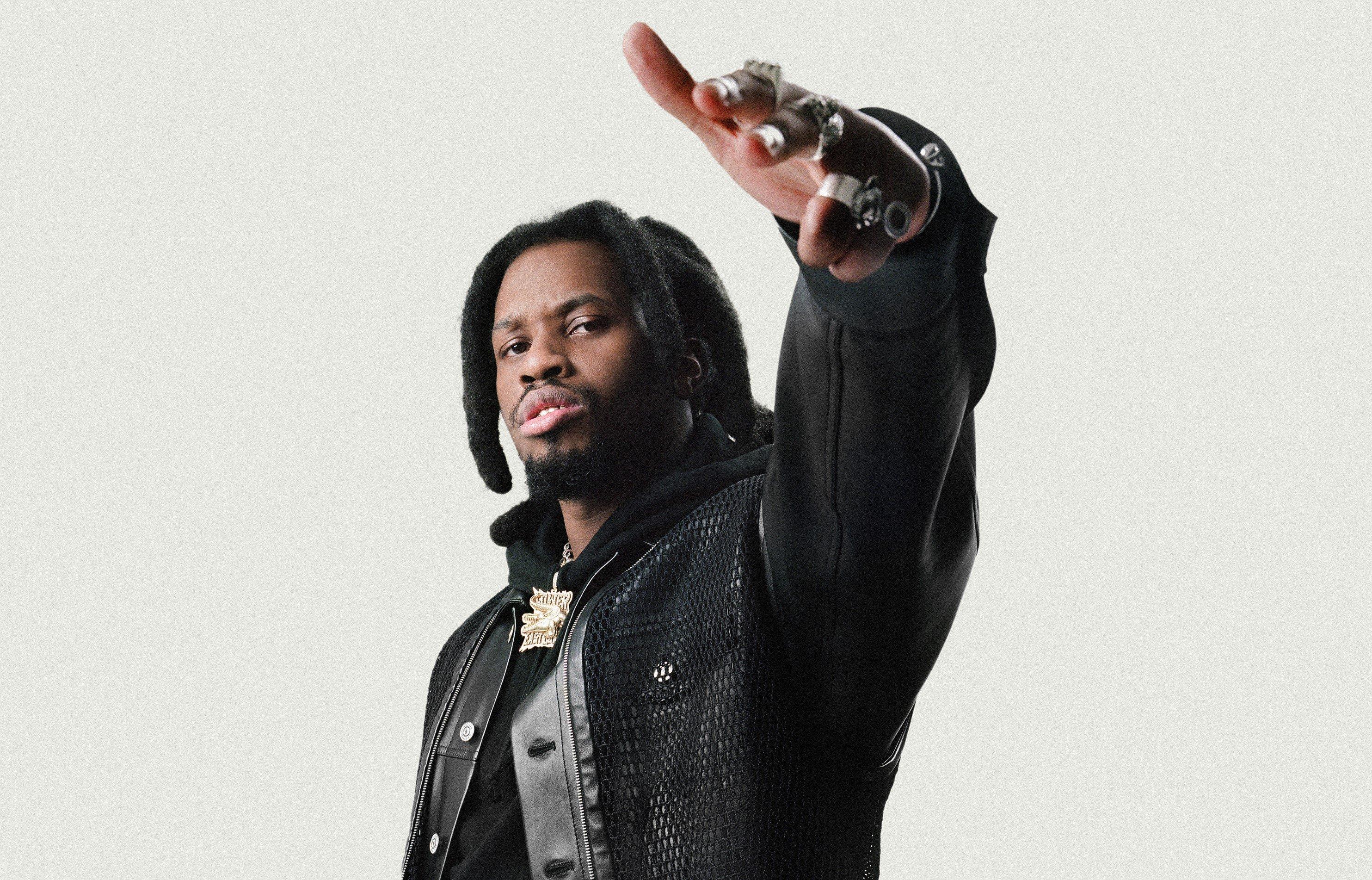
Photo: Giovanni Mourin
interview
Denzel Curry Returns To The Mischievous South: "I've Been Trying To Do This For The Longest"
Nearly 30 years after he released 'King of the Mischievous South Vol. 1,' Denzel Curry is back with 'Vol. 2.' The Miami rapper details his love of Southern hip-hop, working on multiple projects, and the importance of staying real.
Denzel Curry isn’t typically one for repetition. His recent run of critically acclaimed projects have all contrasted in concept and musicality.
The Miami Gardens native has cascaded through boom-bap, synth-soaked trap metal, and cloud rap throughout his catalog. But on his upcoming project, King of the Mischievous South Vol. 2, Curry returns to the muddied, subwoofer-thudding soundscape that he captured on the first installment back in 2012.
Curry was just 16 when he released King of the Mischievous South Vol. 1 Underground Tape 1996]. "I was a kid, man," Curry tells GRAMMY.com. "I was just trying to emulate my favorite rappers at the time who really represented the South. That was pretty much what I was on at the time – the Soulja Slims, the No Limits, but mostly Three 6 Mafia. And then I just put Miami culture on top of that."
Curry first explored the rough-cut "phonk" of Southern acts like DJ Screw and Pimp C as a teenager. His first mixtape, King Remembered Underground Tape 1991-1995, caught the attention of then-rising rapper and producer SpaceGhostPurrp. He shared Curry’s project on his social media accounts, making him an official member of South Florida’s Raider Klan.
Read more: A Guide To Southern Hip-Hop: Definitive Releases, Artists & Subgenres From The Dirty South
The now-defunct group is well behind Curry, who’s ascended from the infancy of his early SoundCloud days to mainstream success. But the rapid-fire delivery and hazy, rough-cut sounds of early Southern rap are still soaked into his musical fibers.
Reignited by the same musical heroes that led to Vol. 1, Curry is comfortable in old sonic form. Vol. 2's lead singles "Hot One" (feat. A$AP Ferg and TiaCorine) and "Black Flag Freestyle" with That Mexican OT fully capture the sharp-edged sound that stretched from Port Arthur, Texas to the Carolinas.
The rapper wanted to go back to the KOTMS series nearly a decade ago, but other projects and outside ventures derailed his return. "I tried to do this thing multiple times," Curry tells GRAMMY.com. "I remember revisiting a [social media post] from 2015 that was like, ‘KOTMS Vol. 2055 is now going to be called Imperial.’ I’ve been trying to do this for the longest."
A string of bouncy, syrup-pouring, and playalistic Southern trap songs led him back to familiar grounds. The new 15-song capsule features Juicy J, 2 Chainz, Project Pat, That Mexican OT, Maxo Kream, and others inspired by the same pioneers that fall below the Mason-Dixon line.
GRAMMY.com sat down with Curry before the release of King of the Mischievous South Vol. 2 on July 19. The "Ultimate" rapper revealed his "Big Ultra" persona, his ability to crank out hits from his bedroom, and his recent discoveries being "outside."
This interview has been lightly edited for clarity and length.
What inspired you to revisit the 'King of the Mischievous South' series?
I was making two projects at once, and there was a through-line from the second half of the project. The second one I was working on kind of just manifested itself into what it is today, 12 years later. And it’s called King of the Mischievous South Vol. 2 because it has the same sonics as the first one.
You mentioned Three 6 Mafia being a big inspiration for Vol. 1. But what about Vol. 2?
The first KOTMS was obviously Three 6 Mafia, and then Lord Infamous was really the person I looked up to, God rest his soul. I get my rap style from him — the rapid flows and stuff like that. You can even hear it on "Walkin’" and "Clout Cobain." But since I’m from Miami, I’m talking about stuff that predominantly happens in Miami. And I’m influenced by Soulja Slim, Master P, DJ Screw, UGK, Trina, Trick Daddy, and Rick Ross.
How did you juggle the two different projects at once?
When I wasn’t working on one project, I was working on the other one. Sometimes I would be working on the same two projects on the same day. I was like, If this one won’t see the light of day until next year, this one has to hold fans over. And the one that was supposed to hold fans over ended up having a crazy through-line.
What were the studio sessions like?
When it came down to the production, I was just making these songs on the fly. A couple came out of Ultraground sessions, but the majority of the songs were made in my bed — just how it was with the first one. "Hot One" was made in my house downstairs, and "Hit The Floor" was made in a random room in an AirBnb. And I think the rest of the songs were made in an actual studio.
I was just flowing, doing my thing, and figuring things out. I was working on one project, and when I wasn’t getting called back to the studio, I was working on another one on the side. The grind didn’t stop.
Was there an element or feature that you really wanted to explore?
I just knew I wanted certain rappers to be featured on [project]. When I was working on "Set It," I originally wanted PlayThatBoiZay. But he didn’t get the record done or whatever the case may be. So, I sent it to Maxo Kream, and he ended up just doing it. And when I made "Wish List," I got Armani White on it. Me and him came off of doing "Goated," so getting that record done was really simple. He pulled up to the studio and he said, "This is tight," and then jumped on the record.
Some stuff didn’t make the cut because we couldn’t get certain people. But the majority of the stuff that made the cut, we were like, "Yes, we did that." Then having people like Ski Mask the Slump God, 2 Chainz, Project Pat, and Juicy J — all these guys played a role. I’m getting people from the South, whether they’re from Texas, Florida, or the Carolinas. And even people outside of the South, like A$AP Ferg and Armani White, they’re all influenced by the same artists.
Learn more: A Guide To Texas Hip-Hop: Definitive Releases, Artists & Events
Your persona on the album, "Big Ultra." Break that down for me.
This is how the name came about — my boy’s nickname is Mr. Don’t Fold. It’s kind of a play on "Mr. Don’t Play," so we came up with "Big Ultra" because I’m doing "ultraground" stuff. It wasn’t on some superpower s—, it’s just me, pretty much. It’s how I wanted to be presented on this tape. It’s just me at the end of the day, it’s no persona.
You’ve been in the rap game for a while. Do you consider yourself a veteran?
I think I’m mostly in a formation period because my best years haven’t even happened yet. I feel like I’m just getting my reps in, preparing myself for my 30s. You know, going through the bulls—, having good times, having bad times.
By the time I get to 30, 35, and 40 — God willing — I could have a fruitful career and not be backtracked by dumb s—. I see myself as someone with a lot to offer because I’m still young.
Do you care about garnering more fame or acclaim? Or is there no need for it?
All my projects are critically acclaimed. The main thing is staying good at what I do. That comes with a lot of effort, a lot of studying, and a lot of work. I take pride in my job and I have fun making music.
I think the hardest part is putting myself out there and being visible. I’m starting to understand that’s what I had to do. I got asked the same question five times in a row about when my album was dropping. I’ve been saying July 19 for the longest. Like, people really haven’t been paying attention? C’mon, bro.
What do you feel is the next step?
I’m just trying to be more visible where the younger generation is at. Most people know me for "Ultimate," "Clout Cobain," or the [XXL Freshman Class] Cypher if I’m being totally real with you. But in due time, everybody has blessings in certain parts of their career. And I’ve been blessed to have a career this long.
All I have to do is just deliver, be real with myself, and do what I have to do. I got to lean into being outside. I didn’t know who messed with me or who liked my stuff until I started going outside and talking to people. You never know who rocks with you until you're outside.
As far as the music and experience, where does the album rank for you?
I didn’t think about where I’d rank this. We had a whole decade of producing great records, and people look forward to the album experience more than the single when it comes to me. This is what it is, and I just want people to enjoy it. It’s not something to put too much effort or thought into. It’s something you can bump into the club, or you could go to a show and turn up to it. That’s where I’m at with it.
Are there any other sounds or genres you want to explore?
It’s going to happen when it’s supposed to happen naturally. But I do want to explore pop and R&B a year from now. I want people to be able to sing my songs and stuff like that.
Latest Rap News & Music

5 Rising L.A. Rappers To Know: Jayson Cash, 310babii & More
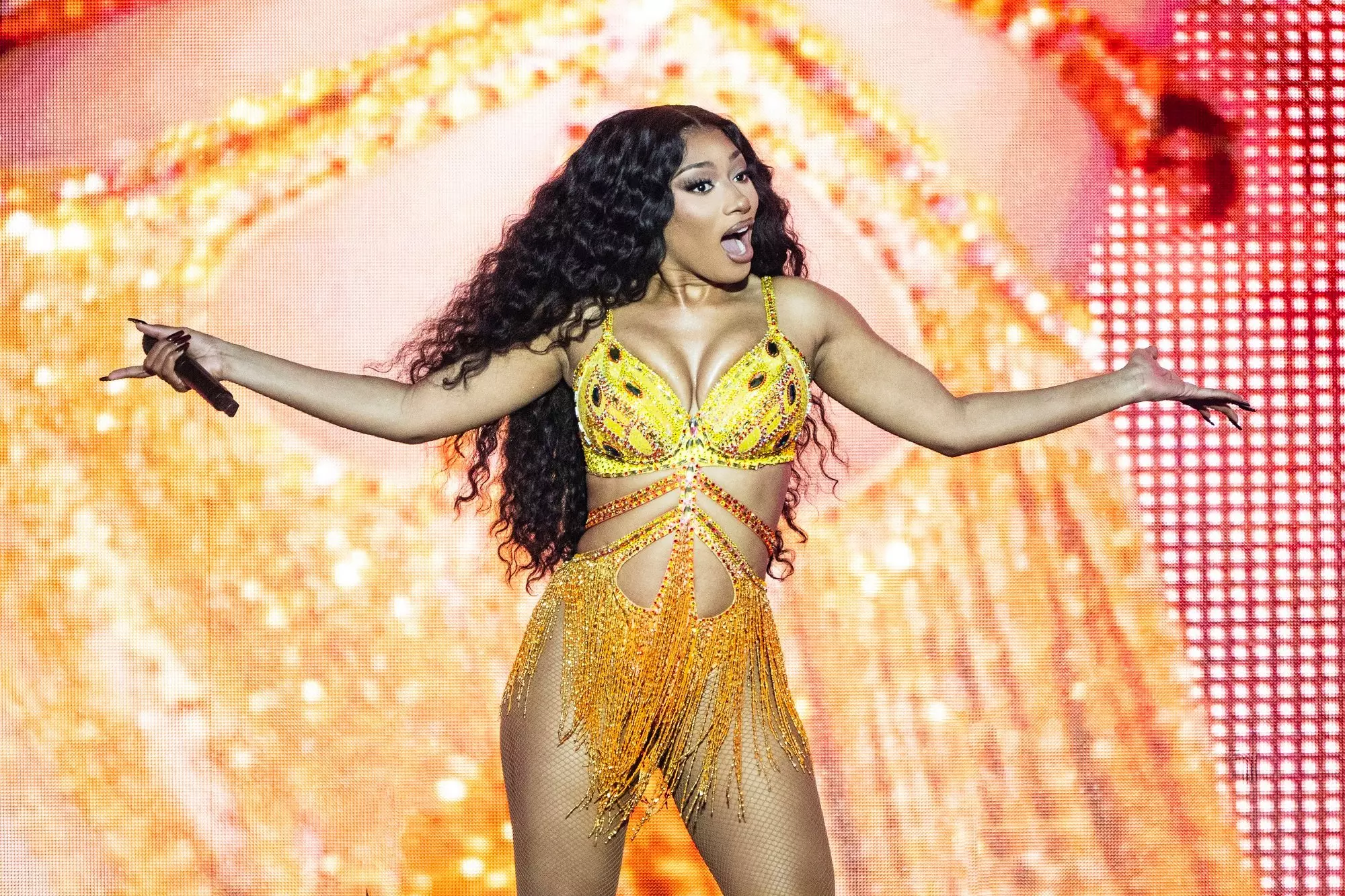
6 Takeaways From Megan Thee Stallion's 'Megan': Snakes, Shots & Self-Assurance

Celebrate 40 Years Of Def Jam With 15 Albums That Show Its Influence & Legacy
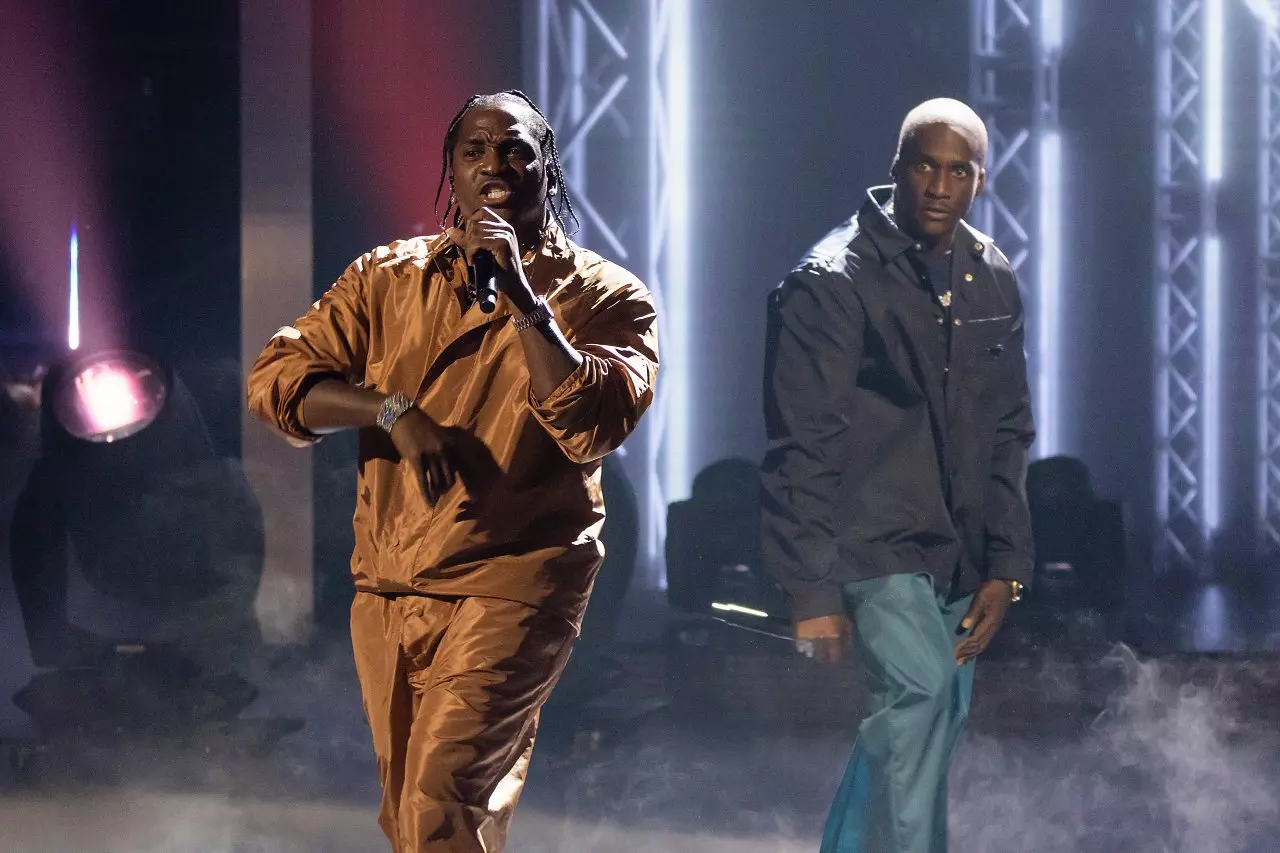
Everything We Know About Clipse's First Album In 15 Years: Pusha T And Malice Rise Again
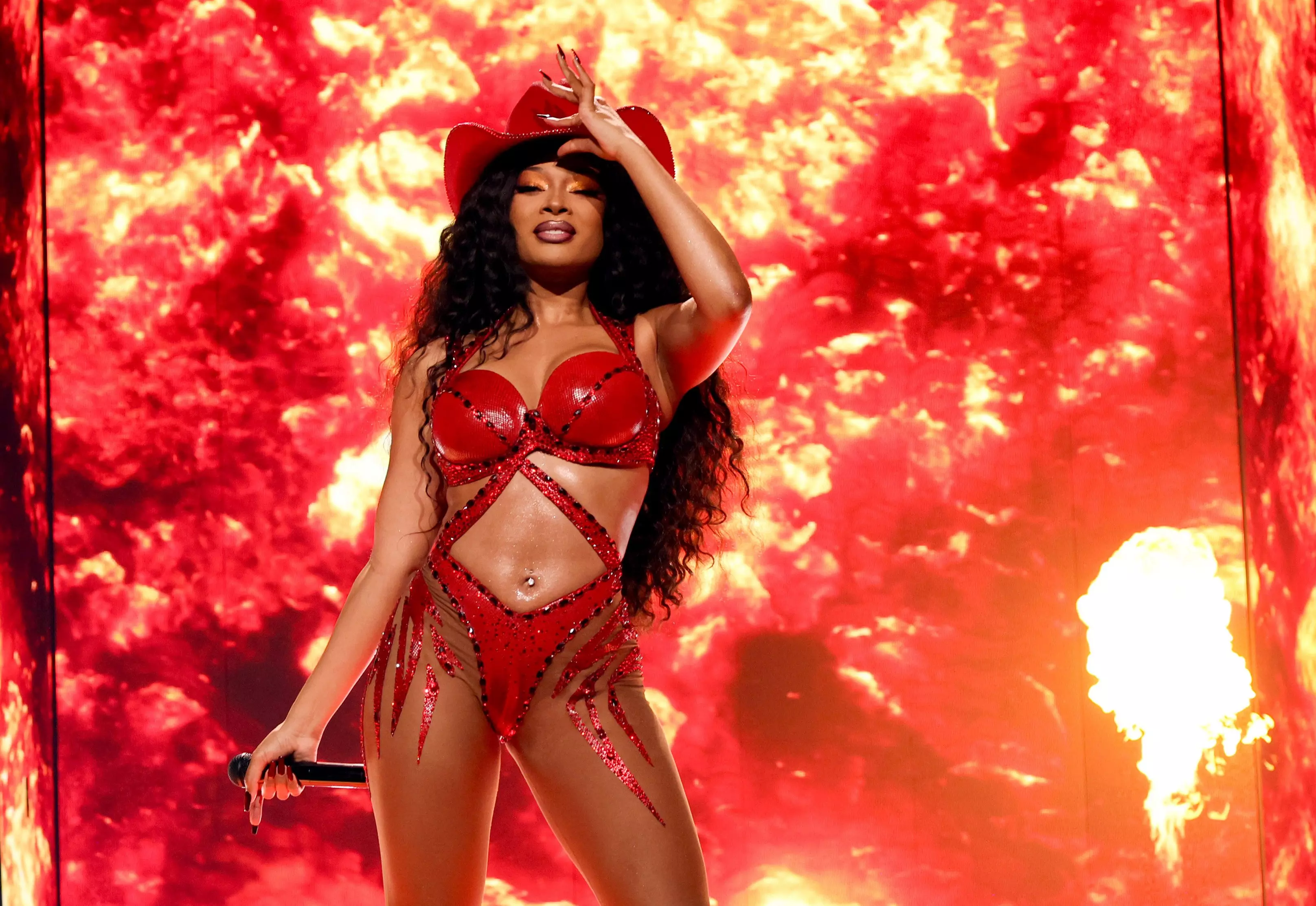
5 Iconic Moments From Megan Thee Stallion's Houston Hometown Shows

Photo: Jeremy Cowart
interview
Behind Ryan Tedder's Hits: Stories From The Studio With OneRepublic, Beyoncé, Taylor Swift & More
As OneRepublic releases their latest album, the group's frontman and pop maverick gives an inside look into some of the biggest songs he's written — from how Beyoncé operates to Tom Cruise's prediction for their 'Top Gun' smash.
Three months after OneRepublic began promoting their sixth album, Artificial Paradise, in February 2022, the band unexpectedly had their biggest release in nearly a decade. The pop-rock band's carefree jam, "I Ain't Worried," soundtracked Top Gun: Maverick's most memeable scene and quickly became a global smash — ultimately delaying album plans in favor of promoting their latest hit.
Two years later, "I Ain't Worried" is one of 16 tracks on Artificial Paradise, which arrived July 12. It's a seamless blend of songs that will resonate with longtime and newer fans alike. From the layered production of "Hurt," to the feel-good vibes of "Serotonin," to the evocative lyrics of "Last Holiday," Artificial Paradise shows that OneRepublic's sound is as dialed-in as it is ever-evolving.
The album also marks the end of an era for OneRepublic, as it's the last in their contract with Interscope Records. But for the group's singer, Ryan Tedder, that means the future is even more exciting than it's been in their entire 15-year career.
"I've never been more motivated to write the best material of my life than this very moment," he asserts. "I'm taking it as a challenge. We've had a lot of fun, and a lot of uplifting records for the last seven or eight years, but I also want to tap back into some deeper material with the band."
As he's been prepping Artificial Paradise with his OneRepublic cohorts, Tedder has also been as busy as he's ever been working with other artists. His career as a songwriter/producer took off almost simultaneously with OneRepublic's 2007 breakthrough, "Apologize" (his first major behind-the-board hit was Leona Lewis' "Bleeding Love"); to this day he's one of the go-to guys for pop's biggest names, from BLACKPINK to Tate McRae.
Tedder sat down with GRAMMY.com to share some of his most prominent memories of OneRepublic's biggest songs, as well as some of the hits he's written with Beyoncé, Adele, Taylor Swift and more.
OneRepublic — "Apologize," 'Dreaming Out Loud' (2007)
I was producing and writing other songs for different artists on Epic and Atlantic — I was just cutting my teeth as a songwriter in L.A. This is like 2004. I was at my lowest mentally and financially. I was completely broke. Creditors chasing me, literally dodging the taxman and getting my car repoed, everything.
I had that song in my back pocket for four years. A buddy of mine just reminded me last month, a songwriter from Nashville — Ashley Gorley, actually. We had a session last month, me, him and Amy Allen, and he brought it up. He was like, "Is it true, the story about 'Apologize'? You were completely broke living in L.A. and Epic Records offered you like 100 grand or something just for the right to record the song on one of their artists?"
And that is true. It was, like, 20 [grand], then 50, then 100. And I was salivating. I was, like, I need this money so bad. And I give so many songs to other people, but with that song, I drew a line in the sand and said, "No one will sing this song but me. I will die with this song."
It was my story, and I just didn't want anyone else to sing it. It was really that simple. It was a song about my past relationships, it was deeply personal. And it was also the song that — I spent two years trying to figure out what my sound was gonna be. I was a solo artist… and I wasn't landing on anything compelling. Then I landed on "Apologize" and a couple of other songs, and I was like, These songs make me think of a band, not solo artist material. So it was the song that led me to the sound of OneRepublic, and it also led me to the idea that I should start a band and not be a solo artist.
We do it every night. I'll never not do it. I've never gotten sick of it once. Every night that we do it, whether I'm in Houston or Hong Kong, I look out at the crowd and look at the band, and I'm like, Wow. This is the song that got us here.
Beyoncé — "Halo," 'I Am…Sacha Fierce' (2008)
We were halfway through promoting Dreaming Out Loud, our first album. I played basketball every day on tour, and I snapped my Achilles. The tour got canceled. The doctor told me not to even write. And I had this one sliver of an afternoon where my wife had to run an errand. And because I'm sadistic and crazy, I texted [songwriter] Evan Bogart, "I got a three-hour window, race over here. Beyoncé called me and asked me to write her a song. I want to do it with you." He had just come off his huge Rihanna No. 1, and we had an Ashley Tisdale single together.
When you write enough songs, not every day do the clouds part and God looks down on you and goes, "Here." But that's what happened on that day. I turn on the keyboard, the first sound that I play is the opening sound of the song. Sounds like angels singing. And we wrote the song pretty quick, as I recall.
I didn't get a response [from Beyoncé after sending "Halo" over], which I've now learned is very, very typical of her. I did Miley Cyrus and Beyoncé "II MOST WANTED" [from COWBOY CARTER] — I didn't know that was coming out 'til five days before it came out. And when I did "XO" [from 2013's Beyoncé], I found out that "XO" was coming out 12 hours before it came out. That's how she operates.
OneRepublic — "Good Life," 'Waking Up' (2009)
["Good Life"] was kind of a Hail Mary. We already knew that "All the Right Moves" would be the first single [from Waking Up]. We knew that "Secrets" was the second single. And in the 11th hour, our engineer at the time — who I ended up signing as a songwriter, Noel Zancanella — had this drum loop that he had made, and he played it for Brent [Kutzle] in our band. Brent said, "You gotta hear this drum loop that Noel made. It's incredible."
He played it for me the next morning, and I was like, "Yo throw some chords to this. I'm writing to this today." They threw some chords down, and the first thing out of my mouth was, [sings] "Oh, this has gotta be the good life."
It's the perfect example of, oftentimes, the chord I've tried to strike with this band with some of our bigger records, [which] is happy sad. Where you feel nostalgic and kind of melancholic, but at the same time, euphoric. That's what those chords and that melody did for me.
I was like, "Hey guys, would it be weird if I made the hook a whistle?" And everyone was like, "No! Do not whistle!" They're like, "Name the last hit song that had a whistle." And the only one I could think of was, like, Scorpion from like, 1988. [Laughs.] So I thought, To hell with it, man, it's been long enough, who cares? Let's try it. And the whistle kind of made the record. It became such a signature thing.
Adele — "Rumour Has It," '21' (2011)
"Rumour Has It" was the first song I did in probably a four year period, with any artist, that wasn't a ballad. All any artist ever wanted me to write with them or for them, was ballads, because of "Halo," and "Apologize" and "Bleeding Love."
I begged [Adele] to do a [song with] tempo, because we did "Turning Tables," another ballad. She was in a feisty mood [that day], so I was like, "Okay, we're doing a tempo today!"
Rick Rubin was originally producing the whole album. I was determined to produce Adele, not just write — because I wanted a shot to show her that I could, and to show myself. I stayed later after she left, and I remember thinking, What can I do in this record in this song that could be so difficult to reproduce that it might land me the gig?
So I intentionally muted the click track, changed the tempo, and [created that] whole piano bridge. I was making it up as I went. When she got in that morning. I said, "I have a crazy idea for a bridge. It's a movie." She listens and she says, "This is really different, I like this! How do we write to this?"
I mean, it was very difficult. [But] we finished the song. She recorded the entire song that day. She recorded the whole song in one take. I've never seen anyone do that in my life — before or since.
Then I didn't hear from her for six months. Because I handed over the files, and Rick Rubin's doing it, so I don't need to check on it. I randomly check on the status of the song — and at this point, if you're a songwriter or producer, you're assuming that they're not keeping the songs. Her manager emails my manager, "Hey, good news — she's keeping both songs they did, and she wants Ryan to finish 'Rumour Has It' production and mix it."
When I finally asked her, months later — probably at the GRAMMYs — I said, "Why didn't [Rick] do it?" She said, "Oh he did. It's that damn bridge! Nobody could figure out what the hell you were doing…It was so problematic that we just gave up on it."
OneRepublic — "Counting Stars," 'Native' (2013)
I was in a Beyoncé camp in the Hamptons writing for the self-titled album. [There were] a bunch of people in the house — me, Greg Kurstin, Sia — it was a fun group of people. I had four days there, and every morning I'd get up an hour and a half before I had to leave, make a coffee, and start prepping for the day. On the third day, I got up, I'm in the basement of this house at like 7 in the morning, and I'm coming up with ideas. I stumble across that chord progression, the guitar and the melody. It was instant shivers up my spine.
"Lately I've been losing sleep, dreaming about the things that we could be" is the only line that I had. [My] first thought was, I should play this for Beyoncé, and then I'm listening to it and going, This is not Beyoncé, not even remotely. It'd be a waste. So I tabled it, and I texted the guys in my band, "Hey, I think I have a potentially really big record. I'm going to finish it when I get back to Denver."
I got back the next week, started recording it, did four or five versions of the chorus, bouncing all the versions off my wife, and then eventually landed it. And when I played it for the band, they were like, "This is our favorite song."
Taylor Swift — "Welcome to New York," '1989' (2014)
It was my second session with Taylor. The first one was [1989's] "I Know Places," and she sent me a voice memo. I was looking for a house in Venice [California], because we were spending so much time in L.A. So that whole memory is attached to me migrating back to Los Angeles.
But I knew what she was talking about, because I lived in New York, and I remember the feeling — endless possibilities, all the different people and races and sexes and loves. That was her New York chapter. She was so excited to be there. If you never lived there, and especially if you get there and you've got a little money in the pocket, it is so exhilarating.
It was me just kind of witnessing her brilliant, fast-paced, lyrical wizardry. [Co-producer] Max [Martin] and I had a conversation nine months later at the GRAMMYs, when we had literally just won for 1989. He kind of laughed, he pointed to all the other producers on the album, and he's like, "If she had, like, three more hours in the day, she would just figure out what we do and she would do it. And she wouldn't need any of us."
And I still think that's true. Some people are just forces of nature in and among themselves, and she's one of them. She just blew me away. She's the most talented top liner I've ever been in a room with, bar none. If you're talking lyric and melody, I've never been in a room with anyone faster, more adept, knows more what they want to say, focused, efficient, and just talented.
Jonas Brothers — "Sucker," 'Happiness Begins' (2019)
I had gone through a pretty dry spell mentally, emotionally. I had just burned it at both ends and tapped out, call it end of 2016. So, really, all of 2017 for me was a blur and a wash. I did a bunch of sessions in the first three months of the year, and then I just couldn't get a song out. I kept having, song after song, artists telling me it's the first single, [then] the song was not even on the album. I had never experienced that in my career.
I went six to nine months without finishing a song, which for me is unheard of. Andrew Watt kind of roped me back into working with him. We did "Easier" for 5 Seconds of Summer, and we did some Sam Smith and some Miley Cyrus, and right in that same window, I did this song "Sucker." Two [or] three months later, Wendy Goldstein from Republic [Records] heard the record, I had sent it to her. She'd said, very quietly, "We're relaunching the Jonas Brothers. They want you to be involved in a major way. Do you have anything?"
She calls me, she goes, "Ryan, do not play this for anybody else. This is their comeback single. It's a No. 1 record. Watch what we're gonna do." And she delivered.
OneRepublic — "I Ain't Worried," 'Top Gun: Maverick' Soundtrack (2022)
My memory is, being in lockdown in COVID, and just being like, Who knows when this is going to end, working out of my Airstream at my house. I had done a lot of songs for movies over the years, and [for] that particular [song] Randy Spendlove, who runs [music at] Paramount, called me.
I end up Zooming with Tom Cruise [and Top Gun: Maverick director] Jerry Bruckheimer — everybody's in lockdown during post-production. The overarching memory was, Holy cow, I'm doing the scene, I'm doing the song for Top Gun. I can't believe this is happening. But the only way I knew how to approach it, rather than to, like, overreact and s— the bed, was, It's just another day.
I do prescription songs for movies, TV, film all the time. I love a brief. It's so antithetical to most writers. I'm either uncontrollably lazy or the most productive person you've ever met. And the dividing line between the two is, if I'm chasing some directive, some motivation, some endpoint, then I can be wildly productive.
I just thought, I'm going to do the absolute best thing I can do for this scene and serve the film. OneRepublic being the performing artist was not on the menu in my mind. I just told them, "I think you need a cool indie band sounding, like, breakbeat." I used adjectives to describe what I heard when I saw the scene, and Tom got really ramped and excited.
You could argue [it's the biggest song] since the band started. The thing about it is, it's kind of become one of those every summer [hits]. And when it blew up, that's what Tom said. He said, "Mark my words, dude. You're gonna have a hit with this every summer for, like, the next 20 years or more."
And that's what happened. The moment Memorial Day happened, "I Ain't Worried" got defrosted and marched itself back into the top 100.
Tate McRae — "Greedy," 'THINK LATER' (2023)
We had "10:35" [with Tiësto] the previous year that had been, like, a No. 1 in the UK and across Europe and Australia. So we were coming off the back of that, and the one thing she was clear about was, "That is not the direction of what I want to do."
If my memory serves me correct, "greedy" was the next to last session we had. Everything we had done up to that point was kind of dark, midtempo, emotional. So "greedy" was the weirdo outlier. I kept pushing her to do a dance record. I was like, "Tate, there's a lot of people that have great voices, and there's a lot of people who can write, but none of those people are professional dancers like you are. Your secret weapon is the thing you're not using. In this game and this career, you've got to use every asset that you have and exploit it."
There was a lot of cajoling. On that day, we did it, and I thought it was badass, and loved it. And she was like, "Ugh, what do we just do? What is this?"
So then it was just, like, months, months and months of me constantly bringing that song back up, and playing it for her, and annoying the s— out of her. And she came around on it.
She has very specific taste. So much of the music with Tate, it really is her steering. I'll do what I think is like a finished version of a song, and then she will push everyone for weeks, if not months, to extract every ounce of everything out of them, to push the song harder, further, edgier — 19 versions of a song, until finally she goes, "Okay, this is the one." She's a perfectionist.
OneRepublic — "Last Holiday," 'Artificial Paradise' (2024)
I love [our latest single] "Hurt," but my favorite song on the album is called "Last Holiday." I probably started the beginning of that lyric, I'm not joking, seven, eight years ago. But I didn't finish it 'til this past year.
The verses are little maxims and words of advice that I've been given throughout the years. It's almost cynical in a way, the song. When I wrote the chorus, I was definitely in kind of a down place. So the opening line is, "So I don't believe in the stars anymore/ They never gave me what I wished for." And it's, obviously, a very not-so-slight reference to "Counting Stars." But it's also hopeful — "We've got some problems, okay, but this isn't our last holiday."
It's very simple sentiments. Press pause. Take some moments. Find God before it all ends. All these things with this big, soaring chorus. Musically and emotionally and sonically, that song — and "Hurt," for sure — but "Last Holiday" is extremely us-sounding.
The biggest enemy that we've had over the course of 18 years, I'll be the first to volunteer, is, this ever-evolving, undulating sound. No one's gonna accuse me of making these super complex concept albums, because that's just not how my brain's wired. I grew up listening to the radio. I didn't grow up hanging out in the Bowery in CBGBs listening to Nick Cave. So for us, the downside to that, and for me doing all these songs for all these other people, is the constant push and pull of "What is their sound? What genre is it?"
I couldn't put a pin in exactly what the sound is, but what I would say is, if you look at the last 18 years, a song like "Last Holiday" really encompasses, sonically, what this band is about. It's very moving, and emotional, and dynamic. It takes me to a place — that's the best way for me to put it. And hopefully the listener finds the same.
Latest News & Exclusive Videos
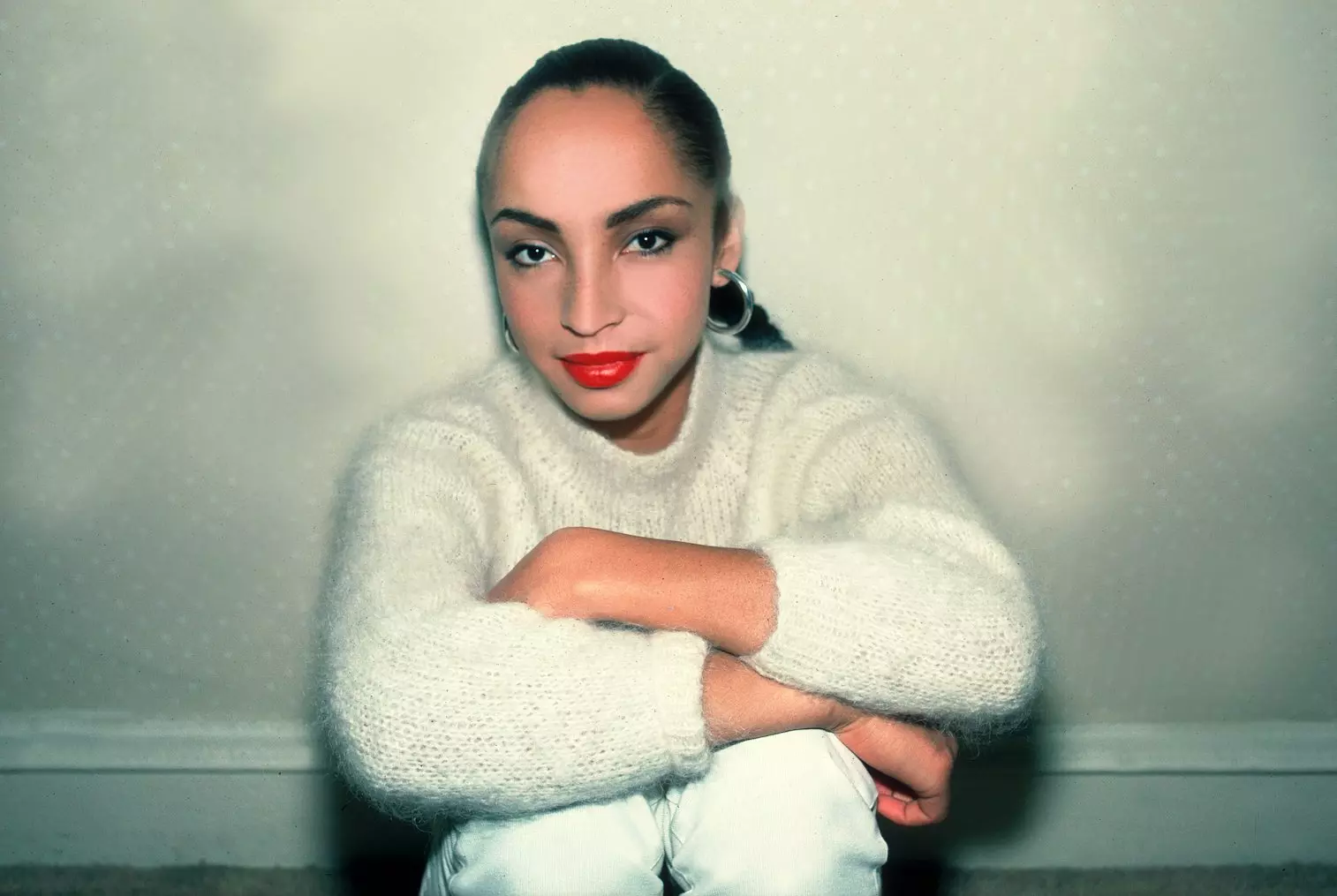
8 Ways Sade's 'Diamond Life' Album Redefined '80s Music & Influenced Culture

Katelyn Tarver's "Everyday Is A Winding Road"
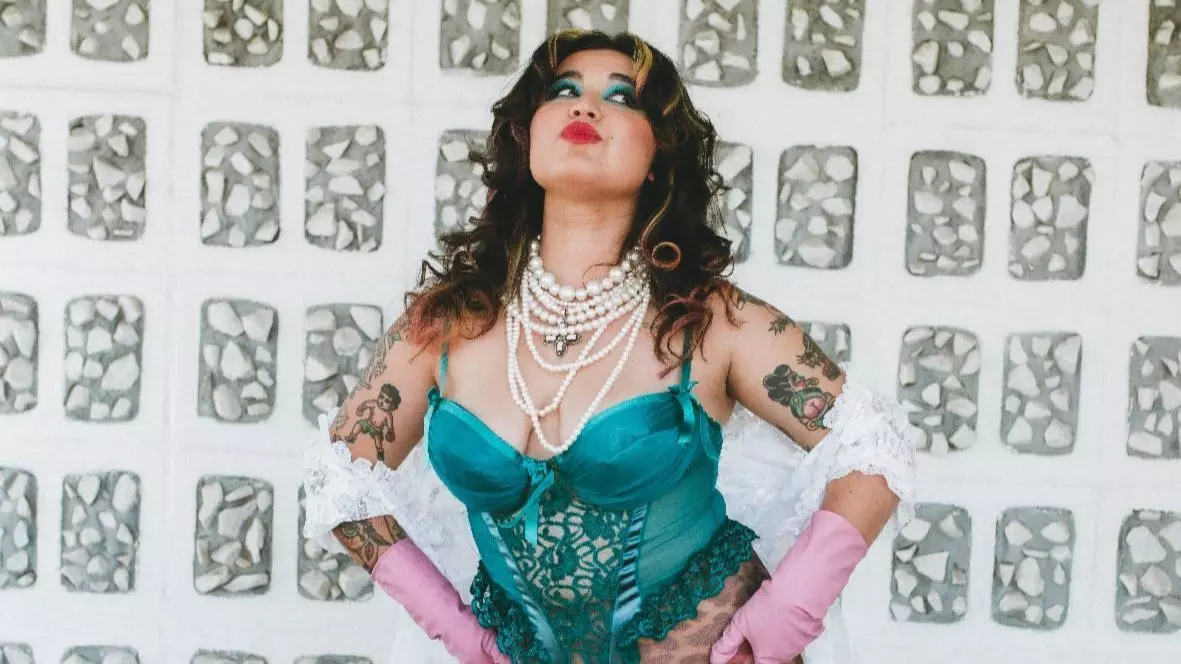
On New Album 'Big Ideas,' Remi Wolf Delivers Musical Poetry In Motion
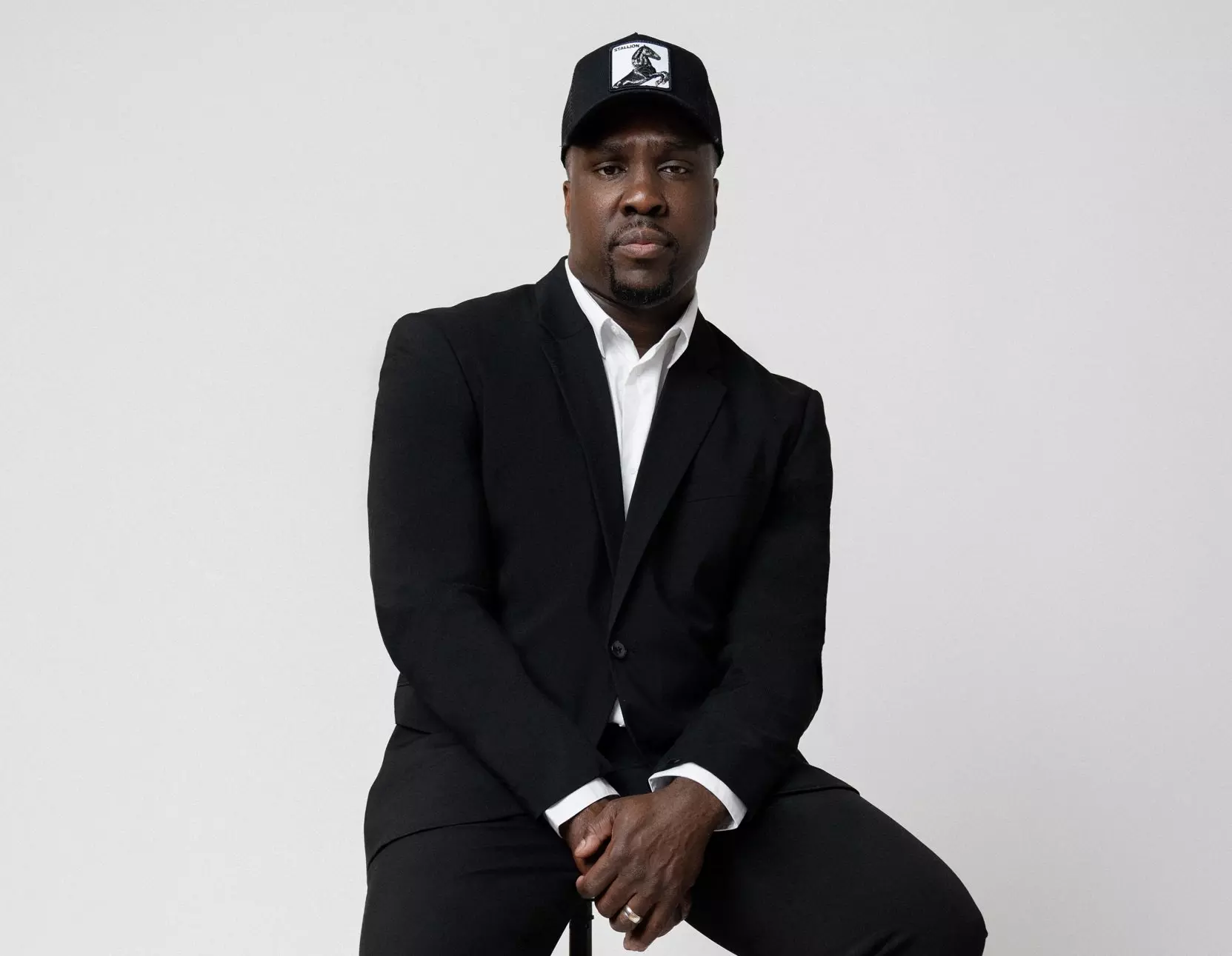
Meet Derrick Hodge, The Composer Orchestrating Hip-Hop's Symphony

Behind Ryan Tedder's Hits: Stories From The Studio With OneRepublic, Beyoncé, Taylor Swift & More
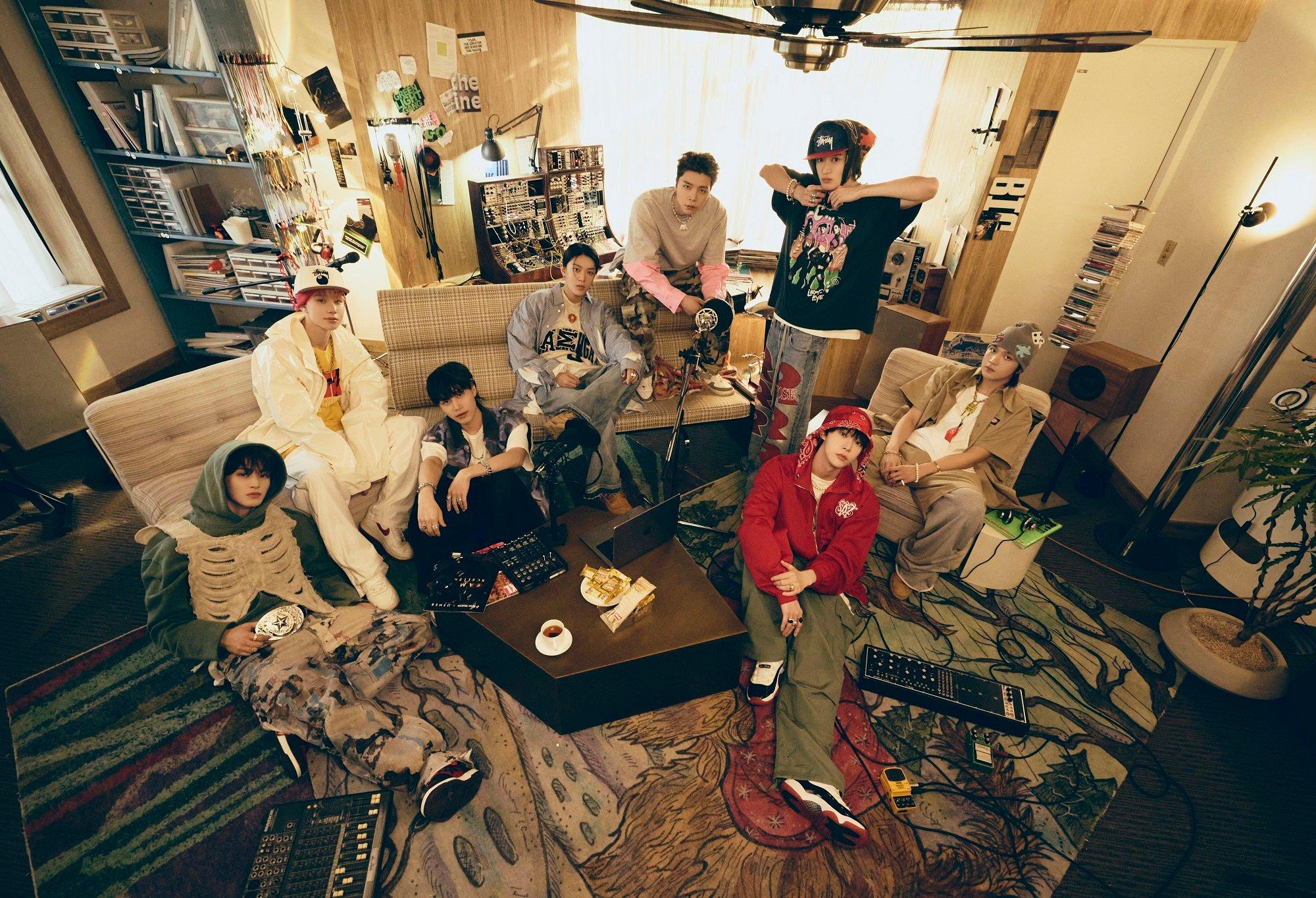
Photo courtesy of SM Entertainment
list
NCT 127 Essential Songs: 14 Tracks You Need To Know From The K-Pop Juggernauts
Eight years after their debut, NCT 127 have released their sixth studio album, 'WALK.' Before you dive in, press play on this chronological list of NCT 127 hits and deep cuts that show their musical ingenuity — from "Highway to Heaven" to "Pricey."
In the K-pop industry, the Neo Culture Technology juggernaut stands out as a cosmopolitan universe. The project is characterized by its highly experimental approach, where each of NCT's subgroups contribute a unique twist.
This is especially true of NCT 127. Comprised of Taeyong, Taeil, Jaehyun, Johnny, Yuta, Doyoung, Jungwoo, Mark, and Haechan, NCT 127's identity was forged via innovative arrangements that defy convention.
During their rookie days, this ahead-of-its-time strategy felt polarizing and raised a few eyebrows. However, after some years of ambivalence (and with some lineup changes in between), they exploded in popularity during the early pandemic with their second studio album, NCT #127: Neo Zone. This record gave them their first title as million sellers, significantly increasing their listeners globally — many of whom embraced the group's music as an escape during quarantine.
Read more: Breaking Down The NCT System, From The Rotational NCT U To The Upcoming NCT Tokyo
Today, they are more influential than ever and their sound is more accepted in the ever-expanidng scope of K-pop. Nonetheless, some K-pop listeners tend to pigeonhole the group as "noise," despite having a diverse catalog and some of the best vocalists of their generation.
Nearly coinciding with their eighth anniversary, NCT 127 released their sixth studio album, WALK on July 15. To mark this occasion, GRAMMY.com presents a song list — in chronological order — demonstrating their musical geniality, which extends far beyond the public's usual perception.
"Switch"
The group's first mini-album, NCT #127, laid the foundations of their audacious sound and paired it with vocal finesse. To wit, the lead single "Fire Truck" arrived as an unapologetic disruptor shaking up the K-pop industry.
But the bookends of the EP are uniquely contrasting. Whereas "Fire Truck" opens with bold posturing, the outlier "Switch" concludes the ride with a more lighthearted and youthful production. In a way, this song could also be considered a prelude to the NCT universe, as it was recorded a year before NCT 127's debut, and it features members of other NCT iterations — like WayV and Dream — when they were still trainees.
"Limitless"
The name of this track is a statement of the group's boundary-pushing ethos. True to form, the song is built over a hammering backbone and lengthy synths that bite. The chorus is the highlight; its dynamic explosion of vocals only intensifies the momentum. And while the Korean version is strong, it could be argued that the Japanese rendition imbues the song with new layers of depth that truly elevate it.
It’s worth mentioning that, during the Limitless era, Doyoung and Johnny were added to the lineup, marking NCT 127’s first release with nine members — a move consistent with the original (now-defunct) concept of the NCT system.
"Sun & Moon"
Some songs are crafted for faraway souls and to offer solace to the aching heart. That's why "Sun and Moon," an evocative B-side from NCT 127's third extended play, exists as an unmissable gem.
It's a lyrical tale of longing, where Taeil, Doyoung, Johnny, Taeyong, Jaehyun, and Yuta serenade a distant love, hoping the gap will shrink and a reunion will come. The arrangement is understated but dream-like, and when the pre-chorus arrives, the most beautiful lines are unveiled: "When my moon rises/ Your sun rises as well/ Under the same sky/ In this different time/ Our hearts are connected/ Under the same sky."
"Come Back"
Co-created by GRAMMY-nominated producer Mike Daley and multi-instrumentalist Mitchell Owens, "Come Back" exemplifies maximalism, undulating between intensity and elegance.
"One of the standout aspects of this song is the creative use of chops throughout the track," Daley tells GRAMMY.com. "Even though the arrangement follows a pretty standard structure for us, these chops add a unique flavor that sets 'Come Back' apart. We got to be more experimental [for this track] and bring in some unusual elements."
The voices of Taeil and Doyoung prominently take center stage, infusing potency that ensures smooth progressions throughout the production.
"Lips"
Featured on the group's first Japanese studio album, Awaken, "Lips" is an unjustly overlooked cut that blends sensuality with hypnotizing Latin rhythms. The deeper you are immersed in it, the more enchanting it becomes, casting a spell over your mind.
Its minimalist formula is effective, and the lyrics hint at a compelling journey: "Your lips come and take me to the place to go/ The place you would know where you should go." Sometimes, less is more, and the impact can be equally powerful.
"Highway to Heaven"
"Highway to Heaven" shines as one of the crown jewels in NCT 127's discography, praised not only for its cathartic production but also for marking a turnaround in their artistry. It sees them delving into more subdued and ethereal soundworlds.
A pre-release single from their fourth mini album, We Are Superhuman, the instrumental is woven with buzzy percussion and silken guitar strings. The group's vocal prowess truly exhilarates, crescendoing a declaration of freedom during the chorus: "We'll take the highway to heaven/ Any time, anywhere I feel you/ You and I, highway to heaven/ This place where we're together is heaven."
The track reaches its pinnacle with an interlude guided by Jungwoo's velvety delivery, eventually setting the stage for Haechan's soaring voice.
"Superhuman"
"Superhuman," the lead single from We Are Superhuman, is a timeless masterpiece. The avant garde song showcases the group's expansive adaptability, exchanging their usual edge for intricate sophistication.
American singer/songwriter Adrian Mckinnon — a frequent collaborator of SM Entertainment, home of the NCT project — teamed up with South Korean producers TAK and 1Take to bring the song to life, and he recalls being "blown away" when he listened to the instrumental. "All the glitches and stutters immediately gave nostalgia," Mckinnon tells GRAMMY.com, noting the sound choices reminded him of old school video games. "[The song] kind of sits in its own lane, maybe somewhere between glitch funk and glitch hop. Maybe a little Daft Punky too?"
Mckinnon says he sat with the instrumental track for half an hour before recording his vocal ideas. "I wanted to absorb it in its entirety before trying anything."
He also explains that they created the song without a specific group in mind, so he was excited to discover the song was placed with NCT 127. "I think this speaks to the versatile nature of the group because they executed the track very well and were able to make it their own. It's easily one of my favorite songs I've been a part of."
"Love Me Now"
Another piece from Daley and Owens, "Love Me Now" pulses with gentleness and heartwarming nostalgia. It's a song made for those days when everything feels right in place.
Daley recalled working on "Love Me Now" during a K-pop songwriting camp in Seoul, and says he refined an existing track. "Most of our stuff is tailor-made for artists in Korea, but this track was very much a U.S. pop/dance radio-sounding track," he says. "It doesn't feature a ton of sections, switch-ups, or the musically intricate bridge that a lot of our K-pop songs normally have. It's very minimalistic, bright, and centered, and sometimes that's all you need."
He observes the creation process of "Love Me Now" was more straightforward than "Come Back," as the latter contains the usual elaborateness of K-pop productions. "That simplicity in ['Love Me Now'] lent itself to making a very catchy, memorable record that was easy to digest."
"NonStop"
By NCT standards, "NonStop" — from the repackaged album NCT #127 Neo Zone: The Final Round — is a B-side that overflows with the potential of a lead single. It's an amalgam of unburdened rap verses and cohesive vocals that glide effortlessly across a cutting-edge production.
Adrian Mckinnon explains that he and Kenzie chose the track from a selection created by the British production duo LDN Noise due to the magnetic pull of the intro. "The arpeggiated tones and the crazy melody of the lead synth immediately took us to the future," he says. "The chord progression and the rising energy out of the pre-chorus — it all felt like some high-speed race through some futuristic city."
The development of the structure proved quite challenging, but the end result encapsulated the intended concept. "Listening to it in its final form, you would think the sections were obvious, but each of the melody and topline — including others that didn't make the song — all felt quite hooky," McKinnon shares. "But since you only have so much 'song,' you must pick your favorite bits and massage the ideas together. That's how we arrived at what 'NonStop' came to be."
"First Love"
A burgeoning romance transforms into the dulcet melodies that define "First Love," a B-side from NCT 127's second Japanese EP, Loveholic, released in February 2021. Excitement beams throughout the lines of the song, capturing the world of possibilities that come with finding the person you've always dreamed of.
When the group leans towards professing love in all its shapes, they do so with a rawness that percolates through their voices, easily perceptible to all. And here, they opt for a playful and tender side.
"Breakfast"
Off of their third full-length album, Sticker, "Breakfast" is distinguished by its harmonic richness and stunning vocal arrangements.\
The track emerged from a collaboration in which Swedish producer Simon Petrén devised the sonic framework, complemented by GRAMMY-winning songwriter Ninos Hanna and songwriter/producer Andreas Öberg. "As the melody ideas evolved, the song was also developed and built up to match the topline," Öberg tells GRAMMY.com. "The original demo was called 'Breakfast' and tailor-made for [the group]. SM Entertainment decided to release this song with them shortly after we submitted it."
Öberg describes the composition as "an interesting hybrid," with the original demo molded to be "a modern dance/house record while still using advanced chord progressions not only with influences from jazz and fusion."
He also cites Michael Jackson as an inspiration, drawing from "his unique style of switching between minor and major tonalities."
"Favorite (Vampire)"
After releasing Sticker, NCT 127 wasted no time and quickly followed up with a repackaged album centered around the hauntingly resonant "Favorite." A brainchild of Kenzie, American producer Rodney "Darkchild" Jerkins, and singer/songwriter Rodnae "Chikk" Bell, this record is the most tempered of all the NCT 127's title tracks.
A whistling sample introduces a thumping trap beat that rapidly unfolds into piercing lines — courtesy of Taeyong and Mark — that slice through the song. But as we hit the road toward the chorus, "Favorite" veers into a more vocally-driven approach, a splendid transition that balances its core. In classic SM style, the bridge is a triumph, with Doyoung, Taeil, and Haechan pouring their hearts out as if they've been shattered into a hundred pieces.
"Angel Eyes"
Listening to "Angel Eyes," a cut nestled in the middle of their most recent release, Fact Check, is akin to a healing escape. From the first seconds, pure bliss fills the air and quickly transforms into an open invitation to lose ourselves in the music.
"Paradise, like an angel fly/ With your wings, make me fly through the brilliant world/ My delight in all the days and nights/ Even in darkness, make me dream the greatest dream," they sing in the last chorus, prescribing optimism atop a layering reminiscent of the '80s.
"Pricey"
One of WALK's B-sides, "Pricey" boasts a delightful instrumental with thick basslines and a fusion of piano and guitar chords. Although the rapped chorus momentarily threatens to stall the pace, vibrant ad-libs — growing more captivating as the song progresses — quickly pick it back up, perfectly aligning the overall effort with their unique sound.
"Pricey" was originally intended for the American market, which makes it all the more inexplicable that it was tucked away in the NCT 127 vault for so long. Thankfully, it's now receiving the spotlight it deserves – it's simply too remarkable to remain unearthed.
More K-Pop News

NCT 127 Essential Songs: 14 Tracks You Need To Know From The K-Pop Juggernauts

ENHYPEN And JVKE "Say Yes" To Cross-Cultural Collabs & Exploring New Genres

GRAMMY Museum Partners With HYBE For New K-Pop Exhibit 'HYBE: We Believe In Music' Opening Aug. 2
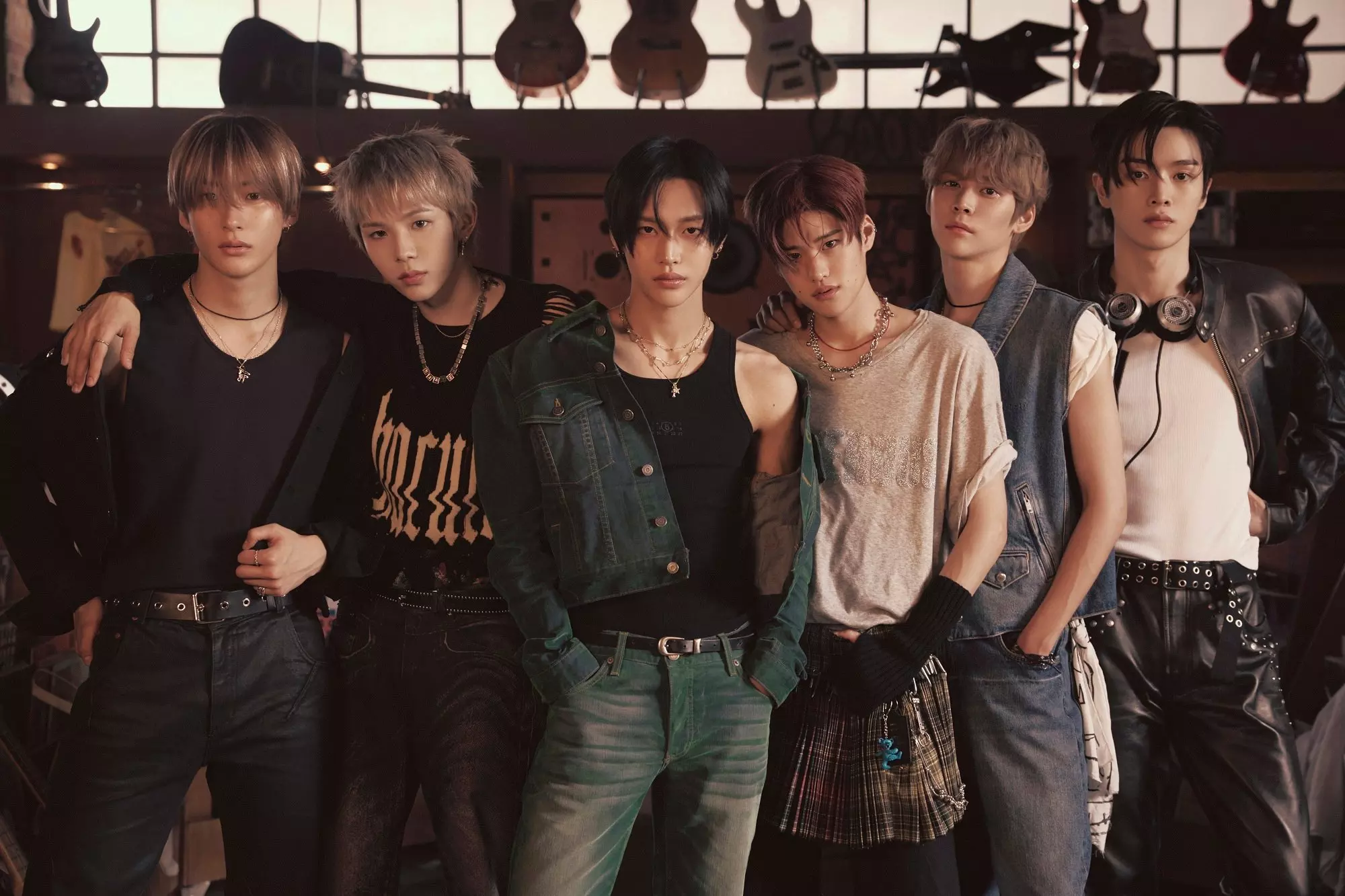
K-Pop Group RIIZE Detail Every Track On New Compilation 'RIIZING – The 1st Mini Album'
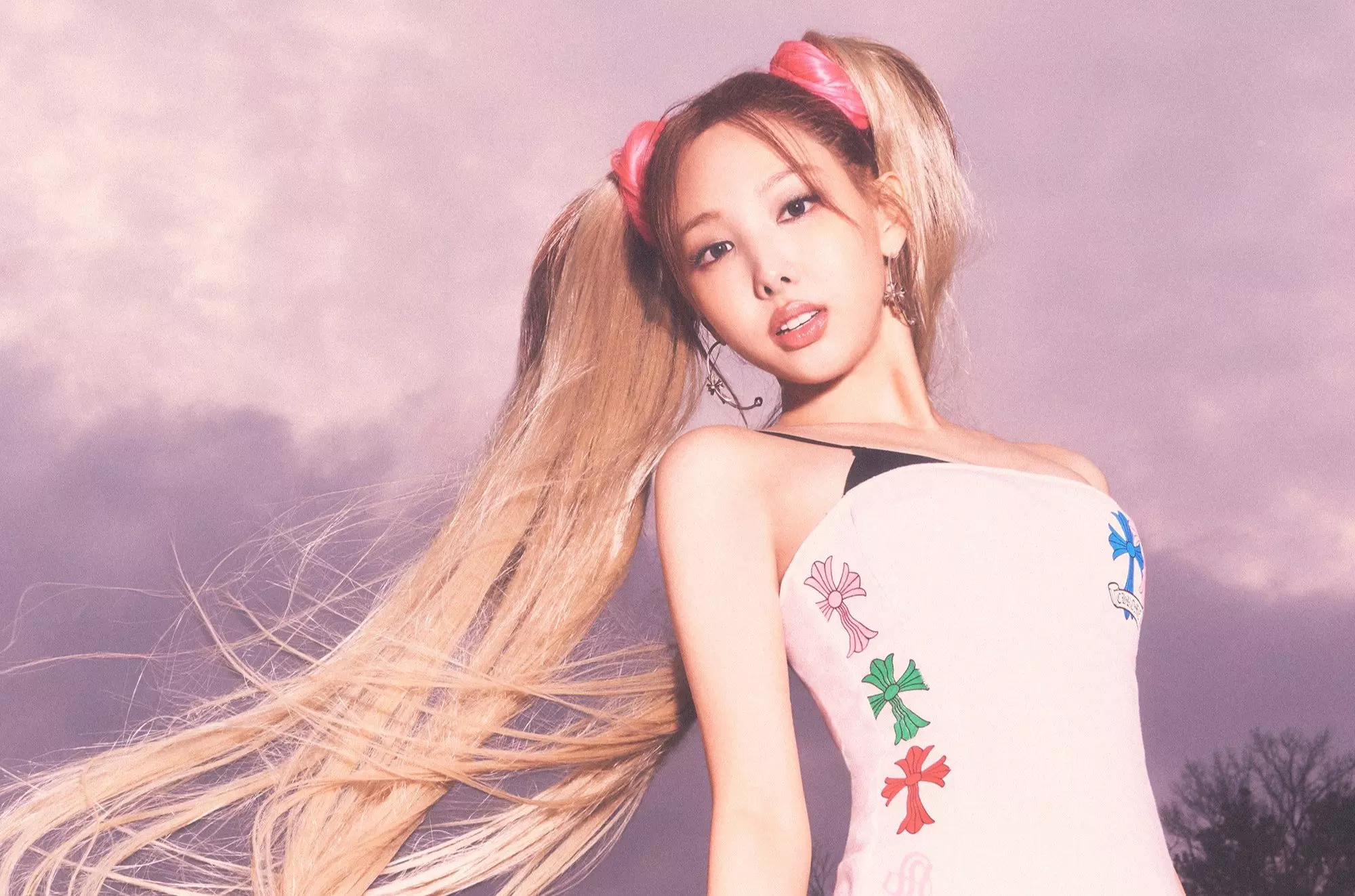
The ABCDs Of Nayeon: How The TWICE Member Embraced Her Authenticity On ‘NA’

Photo: Amy Lee
list
5 Rising L.A. Rappers To Know: Jayson Cash, 310babii & More
From San Diego to the Bay Area, Seattle and beyond, the West Coast bursts with talent. Los Angeles is at the heart of this expanse, and these five rappers are just a few who are showcasing the vibrant sounds of West Coast hip-hop.
GRAMMY winners Kendrick Lamar and Mustard have long repped their California roots. Earlier this summer, their powerhouse anthem "Not Like Us" brought West Coast rap back to its roots and shone a global spotlight on the scene.
Lamar and Mustard are at the forefront of a renaissance in West Coast rap. Their shared roots in Southern California cities — Mustard from Los Angeles and Kendrick from Compton — adds authenticity and resonance to their partnership. Their undeniable chemistry was on display in the video for "Not Like Us," which received a million views less than an hour after its release.
Mustard's signature beats and Lamar's profound lyricism has resurfaced the sound and culture that makes West Coast rap so unique and paved the way for a new generation of artists. All signs suggest that another impactful collaboration may appear on Mustard's upcoming album, Faith of A Mustard Seed.
Learn more: A Guide To Southern California Hip-Hop: Definitive Releases, Artists & Subgenres From L.A. & Beyond
Kendrick Lamar headlined the electrifying Pop Out concert on Juneteenth, which also featured sets from Mustard and DJ Hed. The event saw a handful of L.A. rappers, opening for Lamar in a showcase of the vibrant talent that defines the region's rap scene.
The West Coast is a vast reservoir of talent, stretching from the Bay Area to Seattle. At the heart of this creative expanse is Los Angeles, which brings fresh perspectives, innovative styles, and renewed energy to hip-hop, ensuring the genre thrives. With the stage set for these newcomers to shine, it's the perfect time to take a closer look at some of the rising talents poised to impact the rap scene. While this list only scratches the surface, it offers a glimpse into the diverse and exciting talent from SoCal, the epicenter of the West.
Blxst
Arising from Los Angeles, Blxst initially played the background as a producer but soon demonstrated his ability to excel across all facets of music creation. Blxst's breakout moment came with his platinum-certified single "Chosen," which solidified his place in the music industry. His collaboration on Kendrick Lamar's "Die Hard" from Mr. Morale And The Big Steppers further showcased his skill for crafting hooks that elevate tracks, resulting in two GRAMMY nominations.
As he prepares to release his debut album, I'll Always Come Find You on July 19, Blxst stands at a pivotal point in his career. With a great resume already to his name, his forthcoming album promises to showcase his undeniable talent and leave a lasting impact on the West Coast music scene.
Bino Rideaux
Bino Rideaux is a South Central native and frequent collaborator with the GRAMMY-winning rapper Nipsey Hussle. He is the only artist to have a joint project with Hussle, No Pressure, released before the prolific rapper's untimely death. Rideaux has hinted at having a treasure of unreleased music with Hussle, saved for the perfect moment and album.
Rideaux is known for creating tracks that get the city outside and dancing. He has made three beloved projects with Blxst, titled Sixtape, Sixtape 2, and Sixtape 3 resulting in sold-out shows and a special place in West Coast Rap fans' hearts. Endorsed by industry heavyweights like Young Thug, Rideaux continues to carve his path at his own pace. His journey is nothing short of a marathon, echoing the enduring legacy of his mentor.
Kalan.FrFr
Kalan.FrFr, whose name stands for "For Real For Real," is an artist whose music is as genuine as his name suggests. Growing up in Compton and Carson, Kalan.FrFr has always stayed true to his roots, and exudes the unyielding confidence essential to making it in the City of Angels.
His breakthrough mixtape, TwoFr, showcased his ability to shine without major features, delivering verses with catchy hooks and melodic rap. He's shown he's not confined to one sound, delivering vulnerable tracks like "Going Through Things'' and "Never Lose You." His EP Make the West Great Again, Kalan.FrFr both proves his loyalty to his origins and highlights his versatility. Kalan.FrFr's signature punch-in, no-writing-lyrics-down style keeps his fans on their toes, ensuring that whatever comes next is unpredictable but authentic.
Jayson Cash
Jayson Cash, a rapper hailing from Carson — the same city as TDE artist Ab-Soul — stays true to West Coast rap, from his lyrics to his beat selection. Listening to Jayson Cash's music is like diving into a vivid life narrative. His prowess as a lyricist and storyteller shines through in every verse. He gives his fans an insight into his journey, making it a relatable music experience.
Cash made waves with his debut mixtape, Read The Room, and scored a Mustard beat on the song "Top Down." Two years later, their collaboration continues, with Cash writing on Mustard's upcoming album. Though often seen as an underdog, Cash is not to be underestimated, earning cosigns from West Coast legends like Suga Free and Snoop Dogg. His latest project, Alright Bet, includes a notable feature from Dom Kennedy.
310babii
310babii has achieved platinum-selling status at just 18 years old, while successfully graduating high school. Yet 310babii's career began in seventh grade, when he recording songs on his phone showing early signs of motivation and creativity. His 2023 breakout hit "Soak City (Do It)" quickly gained traction on TikTok — and caught the ears of Travis Scott and NFL player CJ Stroud.
As the song grew in popularity, it led to a remix produced by Mustard, who invited the Inglewood native to join him onstage during his set at The Pop Out. 310babii's innovative spirit shines through in his distinctive visuals, exemplified by the captivating video for his song "Back It Up." His recent debut album, Nights and Weekends, released in February, underscores his evolving talent and promise within the music industry.
Latest News & Exclusive Videos

8 Ways Sade's 'Diamond Life' Album Redefined '80s Music & Influenced Culture

Katelyn Tarver's "Everyday Is A Winding Road"

On New Album 'Big Ideas,' Remi Wolf Delivers Musical Poetry In Motion

Meet Derrick Hodge, The Composer Orchestrating Hip-Hop's Symphony

Behind Ryan Tedder's Hits: Stories From The Studio With OneRepublic, Beyoncé, Taylor Swift & More
